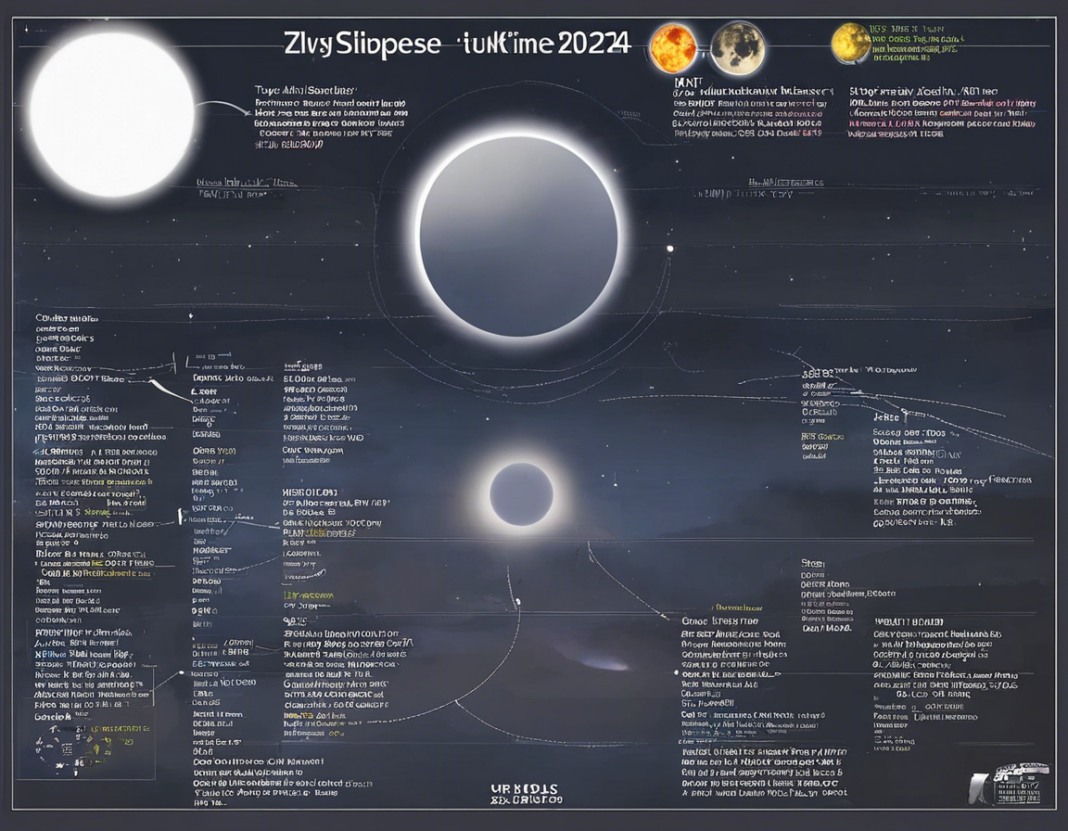Are you eagerly anticipating the celestial event known as the solar eclipse? If you’re in the United Kingdom, you’re in luck because a total solar eclipse is set to occur on April 23, 2024. During this spectacular event, the moon will completely block out the sun, casting a shadow on Earth and creating a once-in-a-lifetime experience for skywatchers.
Understanding Solar Eclipses
Before diving into the specifics of the upcoming 2024 solar eclipse, let’s first understand what a solar eclipse is. A solar eclipse happens when the moon passes between the sun and the Earth, blocking all or part of the sun’s rays. There are three types of solar eclipses: total, partial, and annular.
- Total Solar Eclipse: This is when the moon completely covers the sun, revealing the sun’s outer atmosphere, the corona. Total solar eclipses are rare and occur in a specific path across the Earth.
- Partial Solar Eclipse: In this event, the moon covers only a part of the sun, resulting in a partial blockage of sunlight.
- Annular Solar Eclipse: During an annular eclipse, the moon covers the center of the sun, leaving a ring of sunlight around the edges. This occurs when the moon is farther away from Earth.
The 2024 Total Solar Eclipse in the UK
The upcoming total solar eclipse on April 23, 2024, will be an unforgettable event for those in the UK. The eclipse will be visible across various regions, offering viewers a chance to witness the moon completely block the sun.
Eclipse Time Schedule
Here is a rough schedule of the 2024 total solar eclipse in the UK:
- Partial Eclipse Begins: The eclipse will begin as the moon starts to move in front of the sun. This phase will gradually darken the sky.
- Total Eclipse Phase: The moon will completely cover the sun, plunging areas in the path of totality into darkness. This is the most awe-inspiring phase of the eclipse.
- Duration of Totality: The duration of the total eclipse will vary depending on your location within the path. It can last for a few seconds to over two minutes.
- Partial Eclipse Ends: As the moon moves away from the sun, the partial eclipse phase will end, and daylight will return to normal.
It’s crucial to plan ahead and find a suitable viewing location with an unobstructed view of the sky to make the most of this rare astronomical event.
Tips for Viewing the Solar Eclipse Safely
While observing a solar eclipse is a thrilling experience, it’s essential to do so safely to protect your eyes. Here are some tips for safe viewing:
- Use Solar Viewing Glasses: Invest in certified solar viewing glasses to protect your eyes from harmful solar radiation.
- Pinhole Projector: Create a pinhole projector to indirectly view the eclipse without looking directly at the sun.
- Telescopes and Filters: If you’re using a telescope, make sure to use a solar filter to prevent damage to your eyes.
- Avoid Looking Directly at the Sun: Even during an eclipse, refrain from looking directly at the sun without adequate eye protection.
Frequently Asked Questions (FAQs) About the 2024 UK Eclipse:
- What is a total solar eclipse?
-
A total solar eclipse occurs when the moon completely covers the sun, casting a shadow on Earth.
-
Where will the 2024 total solar eclipse be visible?
-
The 2024 total solar eclipse will be visible in various regions across the UK.
-
How long will the total eclipse last in the UK?
-
The duration of totality during the 2024 solar eclipse will vary depending on your location within the eclipse path.
-
Can I look at a solar eclipse without eye protection?
-
No, it is never safe to look directly at the sun during a solar eclipse. Use certified solar viewing glasses or indirect viewing methods.
-
What should I do to prepare for the solar eclipse?
-
Plan ahead, find a suitable viewing location, and gather the necessary eye protection such as solar viewing glasses or a pinhole projector.
-
What time will the 2024 solar eclipse start in the UK?
-
The exact timing of the eclipse will vary depending on your location within the UK. Keep an eye on local listings for precise timings.
-
How often do total solar eclipses occur in the UK?
-
Total solar eclipses are rare events, with the frequency of occurrence varying across different regions.
-
What is the difference between a total and partial solar eclipse?
-
In a total solar eclipse, the moon completely covers the sun, while in a partial eclipse, only a portion of the sun is blocked by the moon.
-
Can I use sunglasses to view a solar eclipse?
-
No, sunglasses do not provide adequate protection for viewing a solar eclipse. Use certified solar viewing glasses specifically designed for this purpose.
-
What should I do if it’s cloudy during the eclipse?
- In case of cloudy weather, try to find a location with clearer skies or look for live streams of the eclipse online to experience it virtually.
Start preparing now to make the most of the upcoming 2024 total solar eclipse in the UK. It’s a rare opportunity to witness a remarkable astronomical event, so mark your calendars and get ready for an unforgettable experience under the darkened sky.


